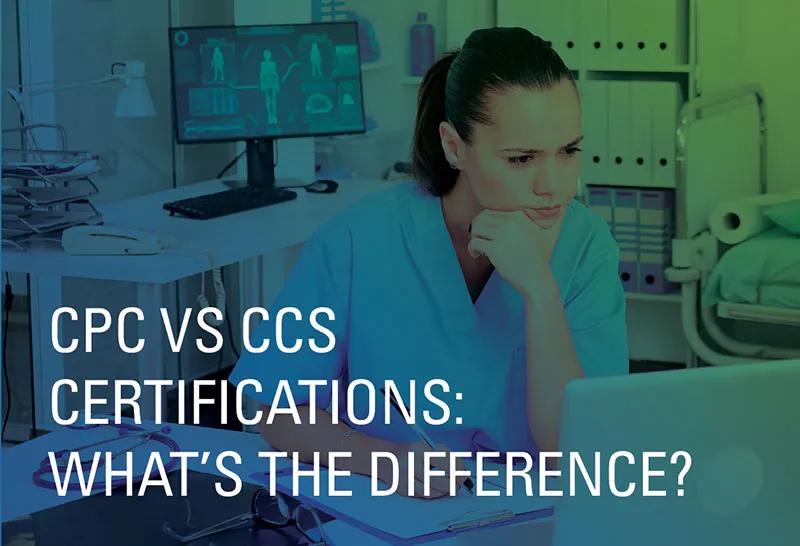What is a Medical Office and Billing Specialist?

Medical office and billing specialists work within healthcare facilities, performing various tasks related to office operations and insurance or patient billing. If you are interested in a healthcare role that doesn’t involve direct patient care, a medical office and billing specialist position may be worth considering.
Here we share what this type of healthcare professional does, in addition to talking about the settings in which you can work. We then dive into how to become a medical office and billing specialist, as well as providing insight into how you can get started on this career path should you decide that it’s the right one for you.
What Does a Medical Office and Billing Specialist Do?
The job duties of a medical office and billing specialist can be broken down into two distinct areas: those that involve office administration and those that surround reimbursement or billing.
Administrative office tasks that may be performed by a medical office and billing specialist include:
- Answering the phones
- Scheduling patient appointments
- Opening and disseminating incoming mail
- Preparing documents or reports
- Updating or maintaining patient recordkeeping systems
Billing-related job duties that might be required by entry-level healthcare professionals working in a medical office and billing specialist role are:
- Transforming patient symptoms, diagnostic tests, and treatments into codes using standardized medical coding systems such as the International Classification of Diseases (ICD) and Current Procedural Terminology (CPT)
- Submitting claims to a patient’s medical insurance provider, seeking reimbursement for products supplied and/or services rendered
- Verifying that patients’ medical records are coded properly, which can help reduce the risk that reimbursement claims will be delayed or denied
- Receiving, recording, and processing payments from patients for their portion of medical expenses according to their insurance policies
- Handling payment-related issues as reported by the patient or insurance company
The exact duties that you would be expected to perform as a medical office and billing specialist can vary depending on the employer. Reading a job description or posting thoroughly can provide a better understanding of the responsibilities of the position as offered by a specific healthcare provider.
Where Do Medical Office and Billing Specialists Work?
Medical office and billing specialists can be found in many different healthcare environments. Some work for an individual healthcare provider or a team of providers. Others are employed by hospitals, outpatient clinics, long-term care facilities (such as nursing homes or assisted living facilities), insurance companies, healthcare systems, healthcare service providers, and more.
Sometimes healthcare companies hire professionals to perform both office and billing functions because their office is smaller and doesn’t have a lot of full-time staff. Bringing in someone who can handle both types of tasks enables the company to continue to run its organization or facility without having to hire more people — which can save money by reducing staffing expenses.
Medical office and billing specialists fall under the Bureau of Labor Statistics (BLS) category of medical secretaries and administrative assistants. The BLS reports that while other types of secretaries and administrative assistant positions are projected to decline between 2021 and 2031, medical secretary and administrative assistant roles are expected to increase by 8%.1
Part of the reason for this increase is an aging population. This suggests that healthcare organizations and facilities that serve and/or treat older patients may have a greater need for medical office and billing specialists in the years ahead.
How to Become a Medical Office and Billing Specialist
As a general rule, entry-level secretary and administrative assistant roles do not require prior training or certification. However, medical secretaries and administrative assistants may need additional training to learn industry-specific terminology.2 Training – particularly training in healthcare terminology – may help a candidate for one of these positions stand out.
Once hired, medical office and billing specialists typically engage in on-the-job training to learn how that specific organization functions and the processes it uses. This training can last for several weeks, if not several months.
If you’re interested in becoming a medical office and billing specialist, it can also help to develop certain skills. Skills that are important in this type of role include those that are related to:2
- decision making
- interpersonal communication
- organization
- writing
Start Training for a Career as a Medical Office and Billing Specialist
If you are interested in preparing for an entry-level position as a medical office and billing specialist and you want to pursue prior training, Ultimate Medical Academy (UMA) offers a Health Sciences – Medical Office and Billing Specialist associate degree or a Medical Office and Billing Specialist diploma program. Each of these is available online, and the associate degree program can be completed in 18 months while the diploma program can be completed in 11 months.3
Both the Health Sciences – Medical Office and Billing Specialist associate degree and Medical Office and Billing Specialist diploma programs provide instruction on important topics such as healthcare communication, medical terminology and billing, diagnostic and procedural coding, healthcare reimbursement, and medical records management.
The Health Sciences – Medical Office and Billing Specialist associate degree includes additional courses in interpersonal communication, patient relations, and computer fundamentals. You also learn more about general education topics such as English, math, and biology.
UMA has been preparing individuals for healthcare careers since 1994, first providing instruction at its Clearwater Campus, then adding programs online. We operate under six basic values at UMA:
- Act with integrity.
- Champion student outcomes.
- Commit to team member success.
- Pursue results with purpose.
- Have fun while building energy.
- Work as one.
When you enroll in UMA’s Health Sciences – Medical Office and Billing Specialist associate degree or Medical Office and Billing Specialist diploma program, you also gain access to our wide variety of student services. These services range from helping you with your homework to helping you network with one of our many healthcare employer partners once you’re ready to start working in this field.
You can learn more about UMA to determine if we’re the right school for you. Or, if you’re ready to get started or have more questions, contact us today. We’d love to hear your career goals and explore how we may be able to help you reach them!
1 Bureau of Labor Statistics. Occupational Outlook Handbook. Secretaries and Administrative Assistants. Job Outlook. https://www.bls.gov/ooh/office-and-administrative-support/secretaries-and-administrative-assistants.htm#tab-6
2 Bureau of Labor Statistics. Occupational Outlook Handbook. Secretaries and Administrative Assistants. How to Become a Secretary and Administrative Assistant. https://www.bls.gov/ooh/office-and-administrative-support/secretaries-and-administrative-assistants.htm#tab-4
3 Completion time can vary depending on the individual student.
Request Information
Talk with us. Start your journey.
Complete this form and we'll call you to explore options at UMA and answer your questions. We'll also email you info on how to get started. We're with you at every step!
Request Information
Talk with us. Start your journey.
Complete this form and we'll call you to explore options at UMA and answer your questions. We'll also email you info on how to get started. We're with you at every step!
About the Author
 Christina DeBusk
Christina DeBuskChristina DeBusk is a freelance writer who has been providing health and wellness content to healthcare organizations such as the American Chiropractic Association and International Sports Sciences Association (ISSA) since 2011. She obtained her Bachelor of Science in Sociology from Central Michigan University, minoring in psychology. She has also earned several ISSA certifications, including Certified Personal Trainer and Certified Nutrition Specialist, achieving the status of Elite Trainer.
Related Content


